In late May, the RBC Climate Action Institute held its inaugural youth Climate Action Event. We brought together industry executives and climate experts and 70 of Canada’s next generation of climate leaders to engage in some of our recent research and spark thoughtful debate and ideation on how to feed, fuel and house the world in a Net- Zero way.
We set out to engage the next generation in our research and generate actionable ideas in agriculture, energy and housing sectors, that we can continue to drive forward in the coming years. But what we learned went much deeper than ideas.
On top of critical thinking on how to address challenges in these key sectors with education and community engagement, participants challenged our industry panel on how to best put their efforts, education and enthusiasm to increase transparency and build trust. They challenged both RBC and our industry panel to make more space and time for youth voices as we continue to take climate action.
Here’s some of what we took away:
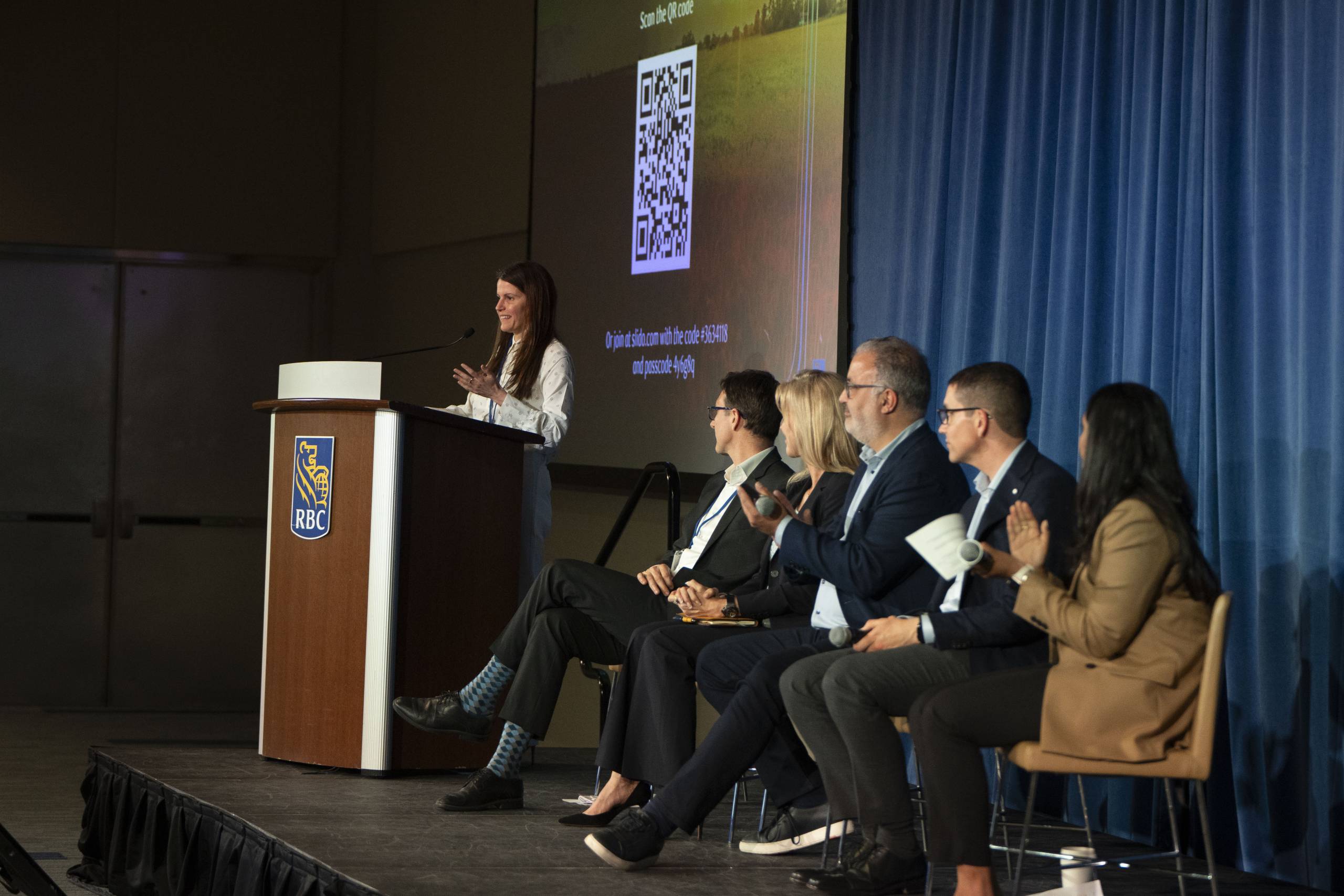
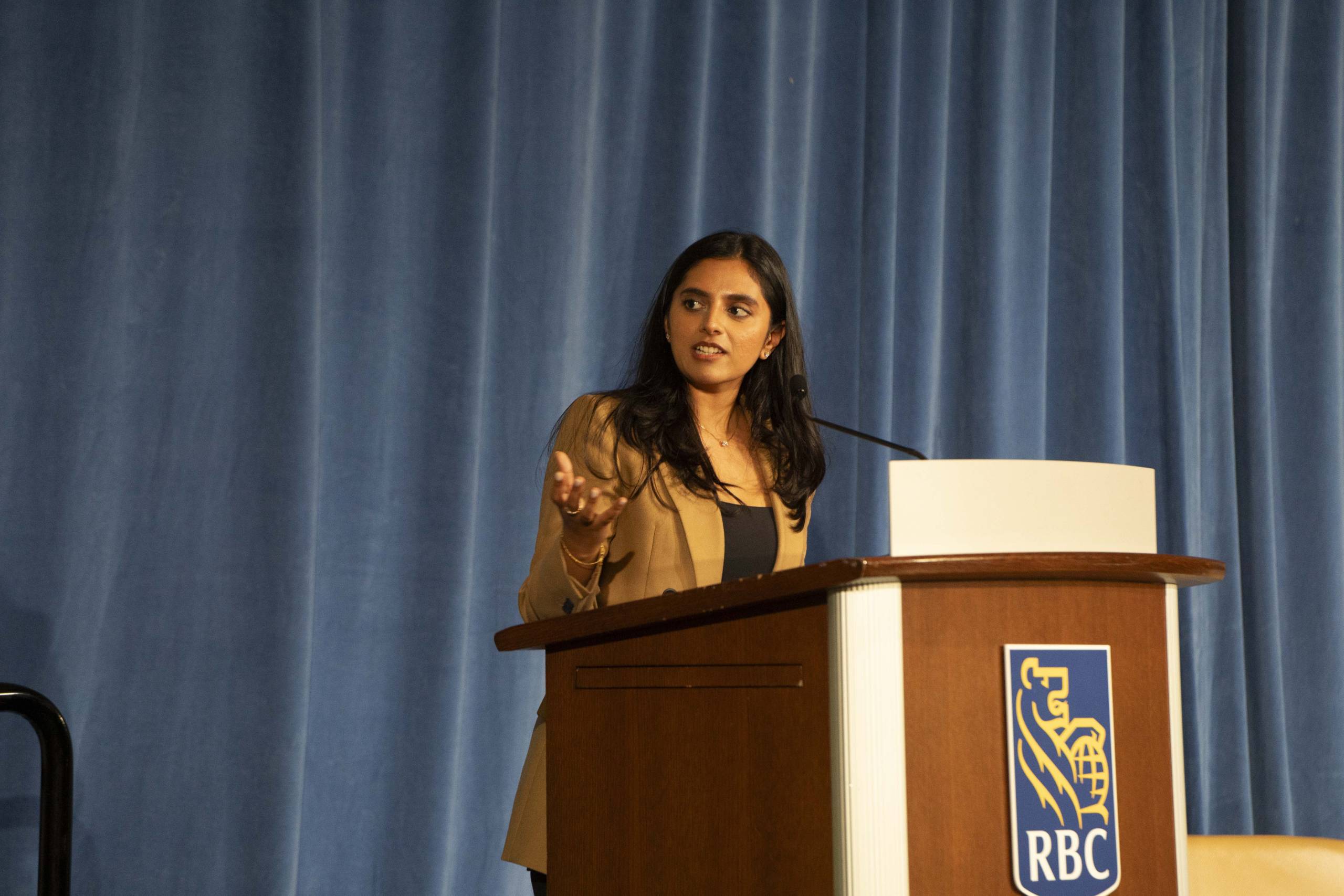
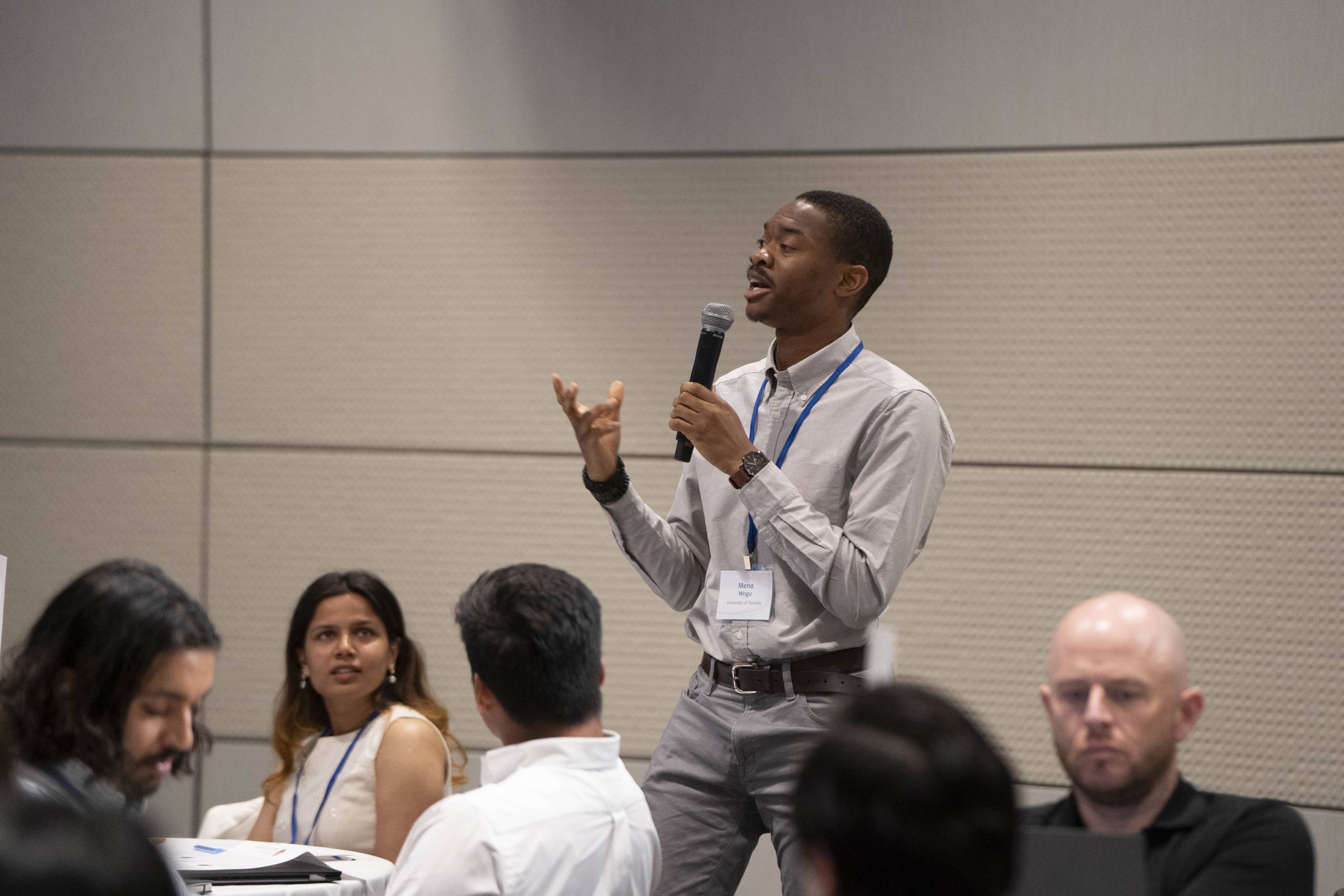
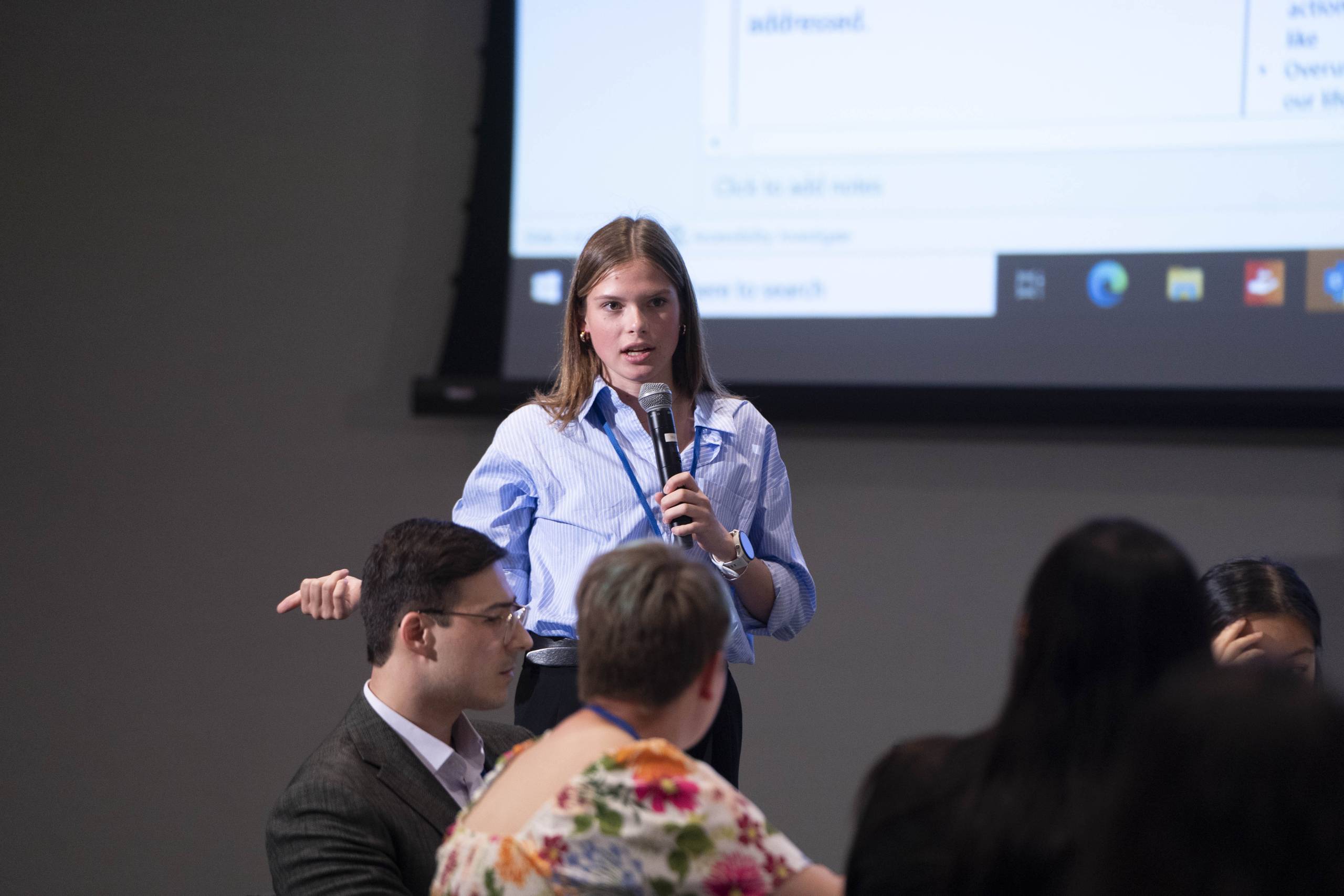
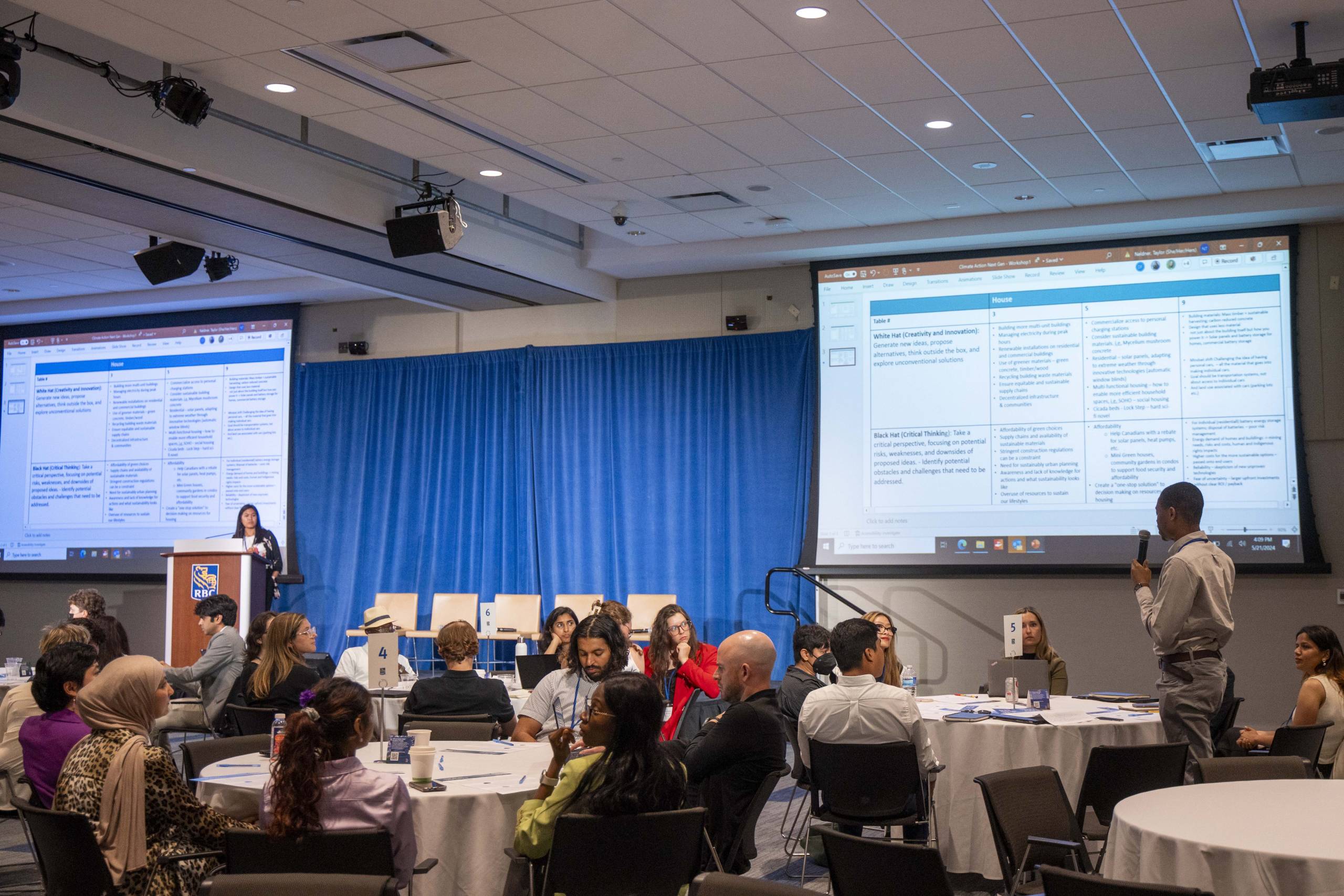
1. Small actions can snowball into big impact
A single plant may not seem like much, but if every person in a community grew a native plant, it would help restore the entire ecosystem. As we heard from Megan Leslie, President and CEO of WWF Canada, collective small changes can add up quickly. WWF Canada’s re:grow program, an online platform that mobilizes Canadians to plant native species in their own spaces, will help restore one million hectares of complex ecosystems. Industry panelists also noted how participants could contribute to climate action through their career, including choosing where they work and informing decarbonization strategies internally to help drive change within their own organization. Other ways include bringing the “latest and greatest” science and technology to the table to inform and influence clients, financiers, and governments on new and sustainable ways of doing things.
2. Using systems to help shift consumer behaviour
Relying on government subsidies is not a long-term strategy so new approaches are needed to facilitate changes in consumer behaviour–both in what they are consuming and how much. We see this starting in schools with meatless days, farming and food programs. There are also programs that encourage sustainable behaviour such as expansion of public transport systems and policies that incentivize use of green retrofits (i.e. heat pumps). We know from RBC-Ipsos research that three-quarters of us felt that given the state of the economy, now is “not the right time” to spend money combatting climate change. We need to go deeper to facilitate change by implementing more systems that help consumers overcome perceived barriers to sustainable practices like lack of affordability, reliability, and access by: 1) instilling the benefits, impacts and outcomes of these choices early on, and 2) encouraging consumers to make better choices that don’t impact their quality of life.
3. Invest in tech
A major theme that emerged was investing in innovative decarbonization solutions during production, and technologies that can help consumers make better choices. In agriculture, we heard about using AI to reduce waste and optimize food production and promoting lab-grown meat to decrease the environmental footprint of traditional livestock farming. Buildings can become more energy-efficient through green building materials like mycelium mushroom concrete and automatic window blinds that adjust to natural light, reducing heating bills. In the energy sector, participants discussed the use of small modular reactors (SMRs), offshore wind farms, and nuclear fusion as cutting-edge solutions for clean energy, alongside better subsidies and infrastructure for electric vehicles (EVs) to make them more accessible and widespread. The focus was on thinking big, emphasizing the need for bold timelines in both the development and deployment of these solutions (think COVID-19 vaccine fast) and a tenfold increase in collaboration across consumers, governments and businesses to ensure we hit our 2030 climate targets.
4. Indigenous communities as collaborators
Attendees shared concerns that climate action doesn’t take into consideration the needs of all stakeholders. Critically lacking is collaboration and consultation with Indigenous communities who can leverage their knowledge as stewards of the land to prioritize resiliency and biodiversity over profitability. Deep engagement in development and decision-making processes can help implement initiatives that reflect the unique environmental, economic, and cultural contexts of each community—that are more likely to be embraced. A collaborative approach enhances the effectiveness of climate action, promotes resilience, and can aid in Canada’s reconciliation journey.
5. Corporations need to build trust
This takes us right to building trust with our communities. Communities won’t collaborate if they don’t see action being taken and commitments fulfilled. Everyone is fatigued by what they perceive to be empty corporate commitments on climate. Attendees shared that their trust in corporations is eroding, and according to Edelman Trust Barometer, only 51% of people trust businesses to do what is right when it comes to climate change. As much as a third of respondents said companies are falling short on living up to their climate commitments . To rebuild that trust, organizations, including RBC, need to be transparent about our commitments, follow through on them and expect to be held accountable if we don’t.
6. Talk less, listen more
An equally important step to building trust is continuously engaging in meaningful—and sometimes uncomfortable—dialogue with young people who want their voices heard. Where appropriate, we must provide adequate time and space for young leaders to connect with decision makers in meaningful, respectful ways. The new generation wants to be a part of free and frank discussions that address their questions and helps them analyze their role in fighting climate change.
This article is intended as general information only and is not to be relied upon as constituting legal, financial or other professional advice. The reader is solely liable for any use of the information contained in this document and Royal Bank of Canada (“RBC”) nor any of its affiliates nor any of their respective directors, officers, employees or agents shall be held responsible for any direct or indirect damages arising from the use of this document by the reader. A professional advisor should be consulted regarding your specific situation. Information presented is believed to be factual and up-to-date but we do not guarantee its accuracy and it should not be regarded as a complete analysis of the subjects discussed. All expressions of opinion reflect the judgment of the authors as of the date of publication and are subject to change. No endorsement of any third parties or their advice, opinions, information, products or services is expressly given or implied by Royal Bank of Canada or any of its affiliates. This document may contain forward-looking statements within the meaning of certain securities laws, which are subject to RBC’s caution regarding forward- looking statements. ESG (including climate) metrics, data and other information contained on this website are or may be based on assumptions, estimates and judgements. For cautionary statements relating to the information on this website, refer to the “Caution regarding forward-looking statements” and the “Important notice regarding this document” sections in our latest climate report or sustainability report, available at: https://www.rbc.com/community-social- impact/reporting-performance/index.html. Except as required by law, none of RBC nor any of its affiliates undertake to update any information in this document.


